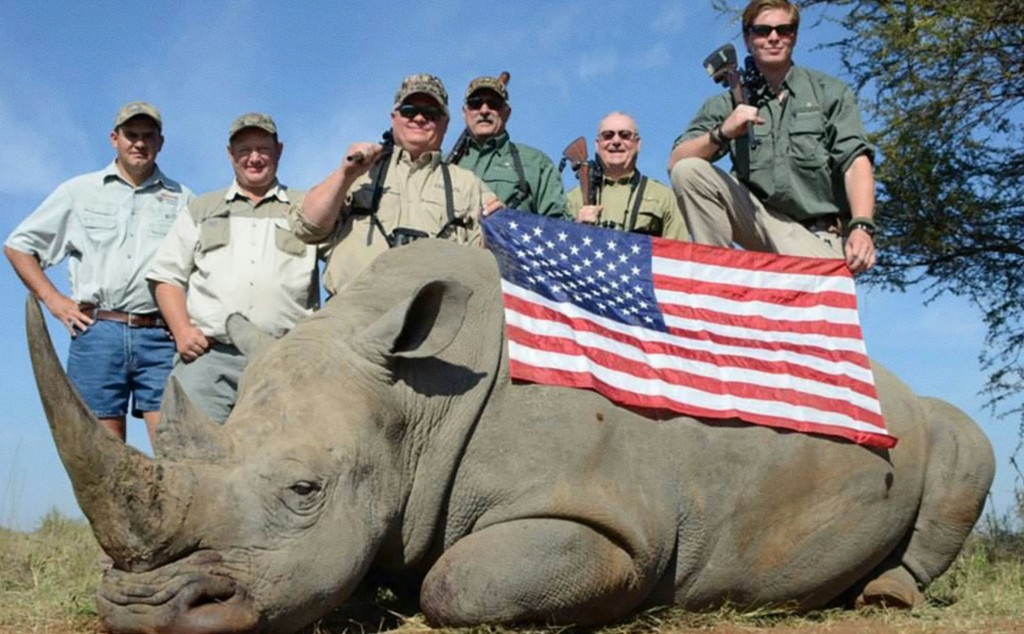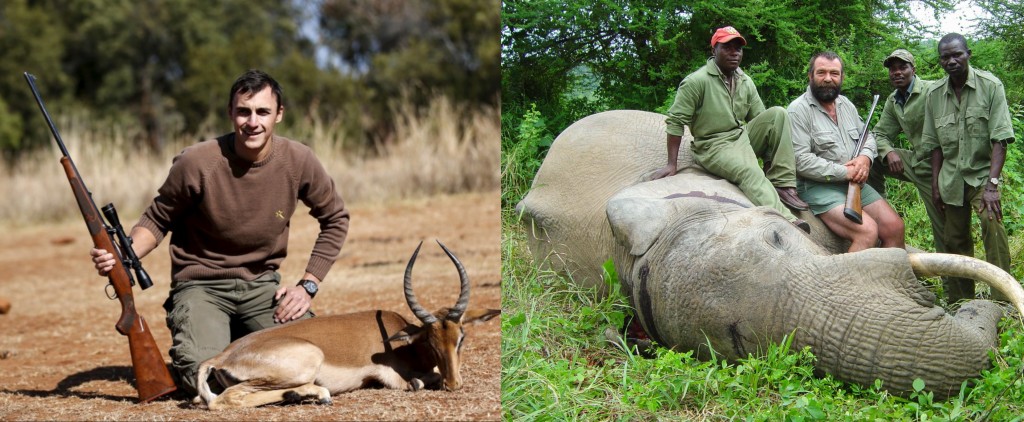A big game hunting website popped up in my news feed the other day. I’ve been researching African wildlife and some robot in a Russian computer had decided I’d perhaps like to try big game hunting. “Come on a Beginners Big Game Hunting Safari”, the headline screamed at me. Now I know many people who have hunted in Africa. And for a period I’ve turned a blind eye to it. The hunters often claim the way to save a species is to hunt them. And they claim their hunting fees help the game reserves survive. Well I’ve changed my tune. The hunting in fact is a joke – So many aspects of this industry are wrong, and propagating the myth of a fair hunt is dishonest. So I’d like to clear up a few things.

Everything is for sale
As you dig into Africa’s hunting industry, the first thing you notice is that everything has a price on its head. If you have the money, you can hunt quite literally, any animal you like, even endangered animals, and all the way down to a warthog for $300. Here’s a few examples.
– White Rhino: $60k
– Elephant: 37k
– Male Lion: $25k
– Female Lion: $15k
– Cape Buffalo: $12k
– Hippopotamus: $8k
– Crocodile; $7k
– Giraffe: $3k

The hunting is anything but fair
Animals are for the most part in large paddocks. Sure there is a bit of scrub and bush, but the boundaries are there. What’s more, hunters are driven by 4WD to the hunt area. They don’t even need to walk. You can set up beside a watering hole and wait for your game to arrive. There are packages for disabled hunters, with wheelchair friendly trails. You can shoot from a vehicle if you can’t be bothered getting off ya fat ass.
Many reserves (that’s what they call them!) have tourists looking at live animals in one area, while another has hunters shooting the animals. Wildlife get accustomed to tourists taking photos, and then one day get a bullet through their chest, not thinking of man as their enemy.
In the recent documentary “Blood Lions”, animals are bred in cages and displayed on a website. Prospective hunters browse the website, pick their animal, and then go and shoot it in a staged hunt at the back of the property. Man until now has provided the poor animal with food – so he’s hardly going to fear him. It’s nothing short of a disgrace.
I have a love / hate relationship with Africa. I love its wildlife, its National Parks and its coastlines. Some of the best people I’ve ever worked and trained with are South African. I’ve been lucky enough to do Ranger Patrols there, trying to protect their animals from poachers. These are challenging and dangerous – Ranger / Poacher deaths have become so common that they barely make the news anymore. But it seems absurd that we go risking our lives to save animals in one game reserve, while just next door the animals are being offered for sale to foreign hunters.
Just how do we save Africa’s Wildlife?
In the end I am a Conservationist, and I look at things from the wildlife’s perspective – What is the best way to ensure animals remain an integral part of our ecosystems into the future?
– Tourism is part of this. National Parks must remain and be supported by tourists
– When you visit Africa, don’t bitch about prices – just consider that your tourism helps support wildlife
– Do your homework on the game reserve. If they allow any form of hunting, go elsewhere
– Support petitions seeking positive change in Africa
– If you know anyone who goes hunting in Africa, have a word to them
– Don’t buy bush-meat meals in Africa.
Whatever you do, do not subscribe to the bullshit from hunters. It is not fair. It is not a sport. And it is not helping the wildlife in Africa
By Captain Pete Bethune

